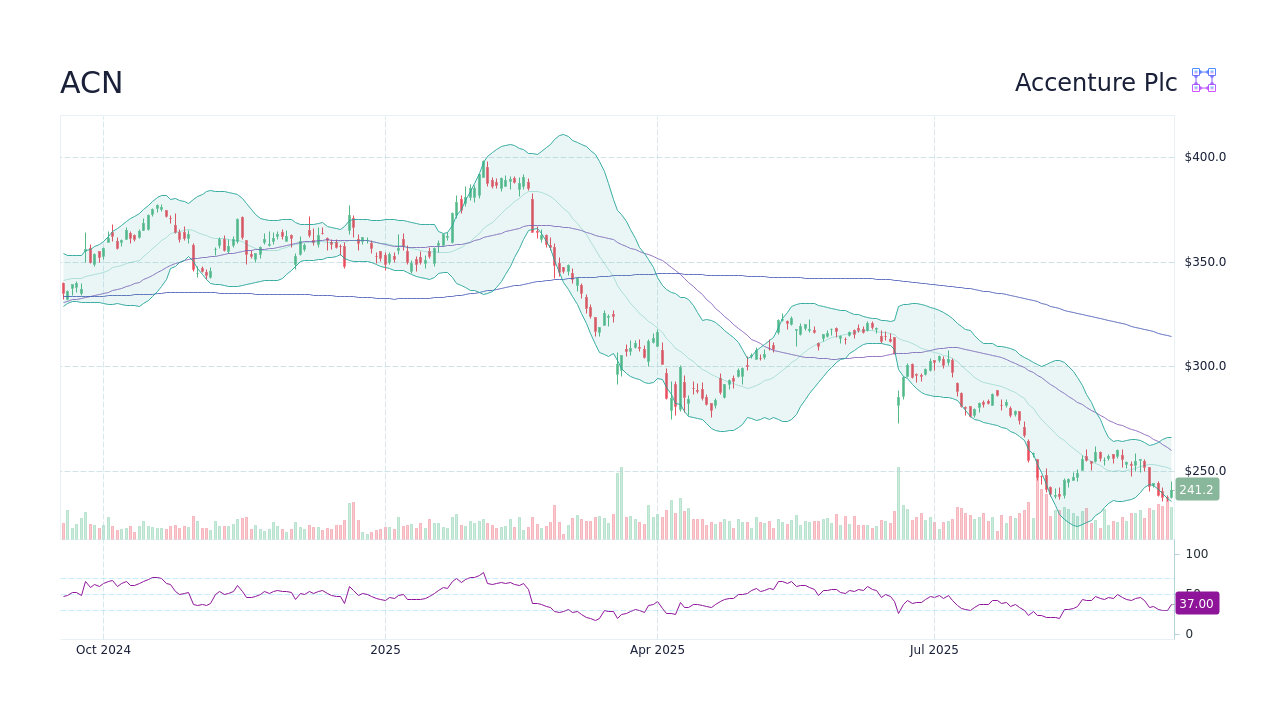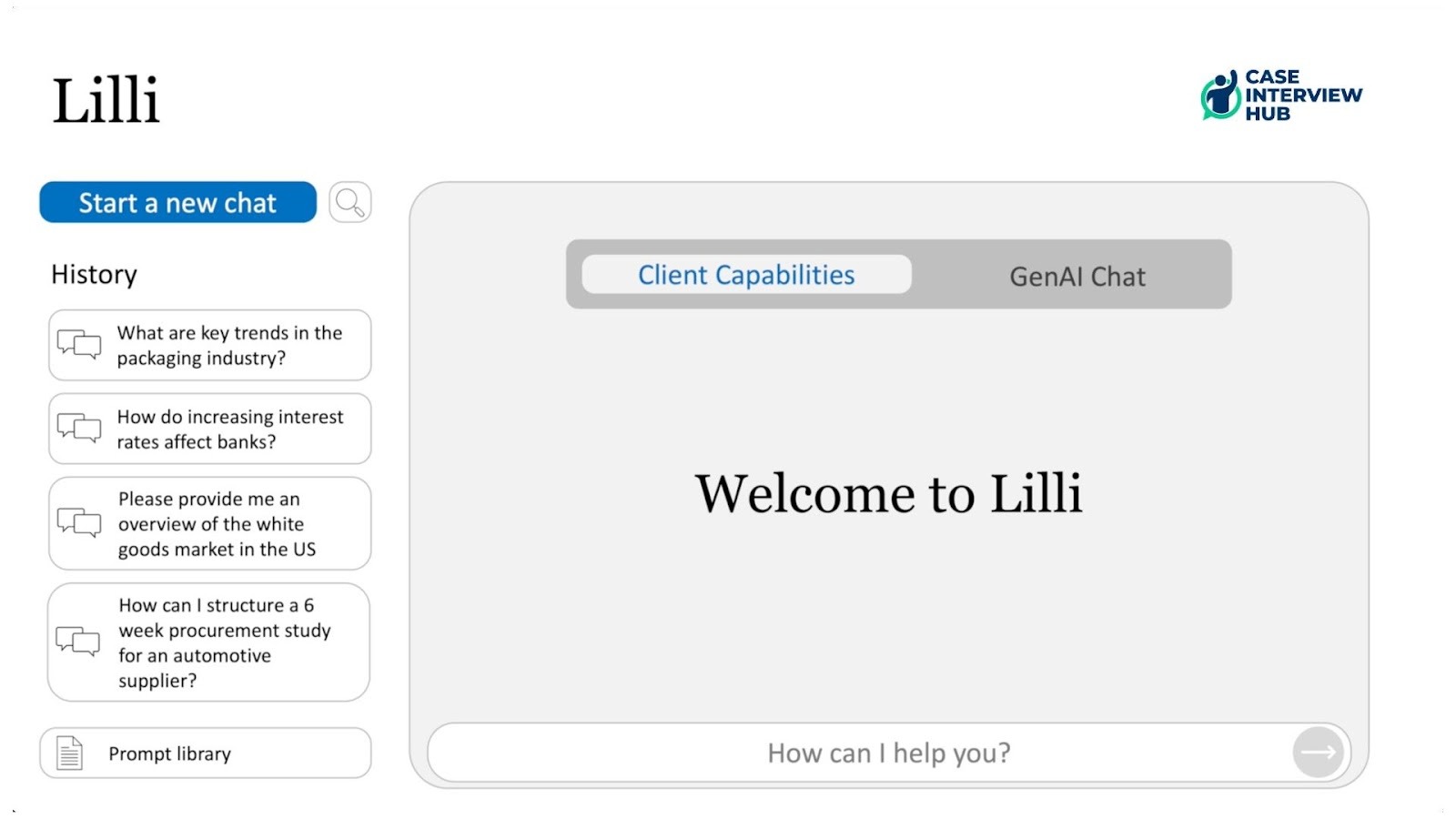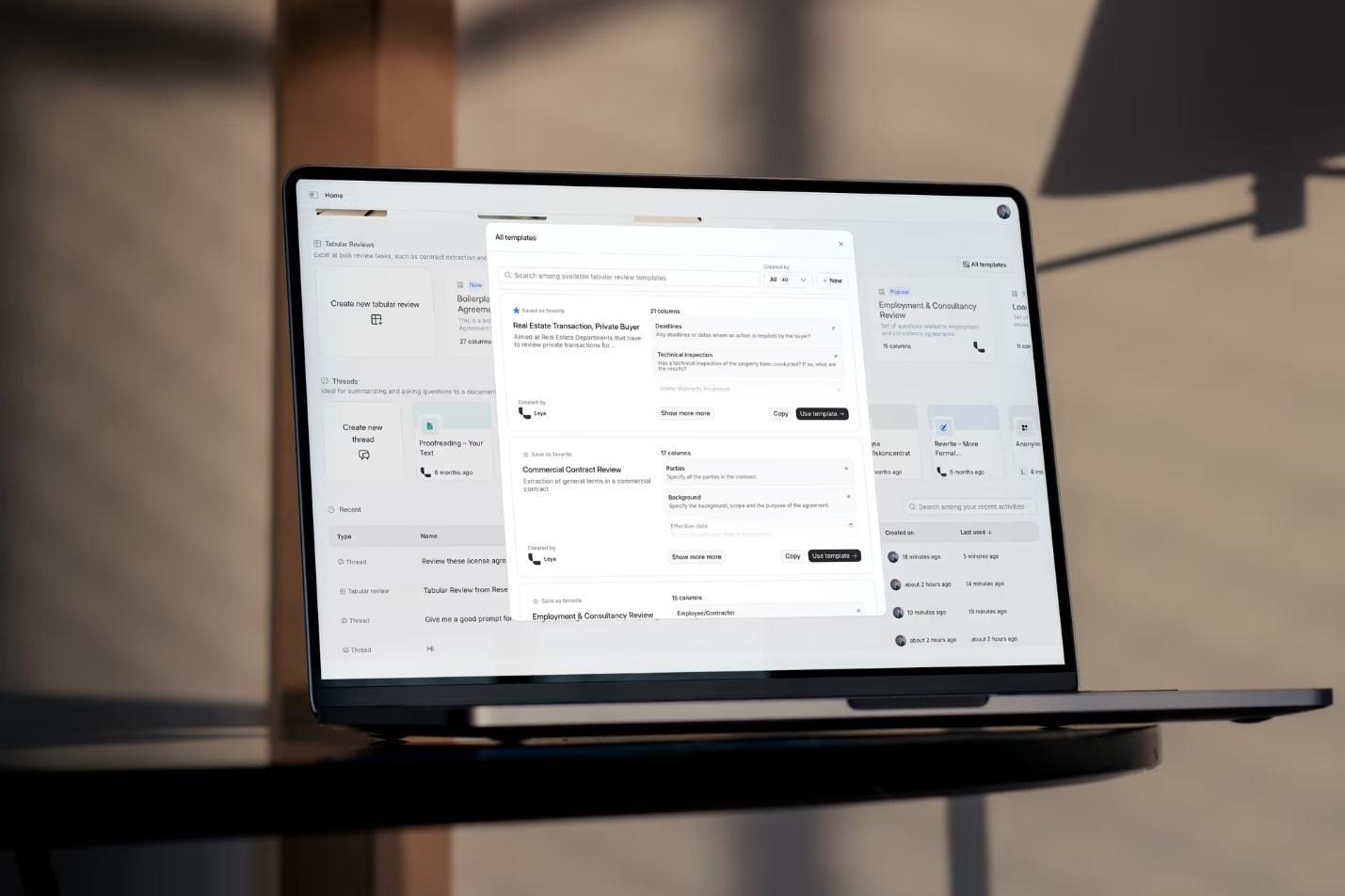AI in Professional Services: Turning Firms to Products
The $6T professional services industry is shifting from selling time to guaranteeing results. Firms must now guarantee outcomes, productize expertise, and operate—not just advise.
The $6 trillion professional services industry is shifting from billing hours to guaranteeing outcomes. Accenture's 30% stock drop and exit of 11,000 employees signals an extinction event for billable hours—clients are building AI capabilities in-house rather than renting advice.
Early movers are seeing massive gains by productizing expertise. McKinsey's Lilli saves 50,000 consultant hours monthly (30% reduction), while legal AI tools deliver 90% faster document review and $6.4M in additional billing per 100 lawyers—by turning knowledge into owned IP.
Survival requires architectural transformation, not just AI adoption. Firms must rebuild how they sell, deliver, and create value—shifting from utilization-based economics to subscription platforms, and from advising to operating systems that guarantee measurable results.
September 2024. Julie Sweet, CEO of Accenture—the world's largest consulting firm with 770,000 employees across 120 countries—faced a decision that would define her legacy. Instead of sending the traditional company-wide memo, she sat in front of a camera to deliver the most consequential message in Accenture's 75-year history.
The video went out to every employee, in every time zone: Accenture was reversing five decades of organizational structure to become an AI-first firm. But it was the subtext that seemed the most shocking: adapt to delivering AI-powered outcomes, now.
Despite reporting $64.9 billion in revenue and 7% growth in Q4 2024, Accenture's stock cratered 30% in 2025. Investors saw what Sweet knew: their managed services business—built on the economics of billable hours—was about to be commoditized by AI in professional services. The traditional consulting playbook was becoming obsolete.

In 2025, Accenture would "exit" 11,000 employees, making a bet on AI in professional services instead. The $865 million restructuring plan was designed to restructure the company to deliver guaranteed outcomes clients could measure, not consultant hours they could track.
Sweet's message could signal an extinction event for the consulting industry's century-old business model, one that’s echoing across professional services organizations. The companies that will thrive aren’t the ones with the most AI tools—they’re the ones brave enough to redesign around results.
Meet the Outcome Economy
The global professional services market is worth over $6 trillion—spanning management consulting, legal services, accounting and audit, IT services, and marketing agencies. But that number masks a fundamental crisis. For the first time in history, these firms face competition not from each other, but from their own clients—and from AI in professional services. Put succinctly by Noah Pepper, CEO of Multiplier Holdings: "Traditional professional services businesses will resemble software companies over time with the support of AI technology."
“Entire workflows will need to be redesigned around AI to redefine how value is created and delivered. Training … will need to evolve to integrate AI facilitation skills with more traditional consulting skills ... And compensation models must evolve, rewarding strategic contribution and client outcomes over billable hours.”
—David S. Duncan, Tyler Anderson and Jeffrey Saviano, Harvard Business Review
This is happening internally as much as externally. We see companies flattening hierarchies and radically expanding spans of control because traditional management layers add friction that prevents AI from delivering value. Firms are redesigned for rapid experimentation rather than control.
Three converging forces are upending traditional models:
Client internalization is accelerating. Companies are building in-house AI capabilities—like "vibe coding"—rather than hiring specialists. Vibe coding lets employees describe an app idea in natural language, and AI generates a working prototype in minutes, enabling rapid prototyping without traditional developers. IBM CEO Arvind Krishna replaced hundreds of HR staff with AI, then redirected resources to hire programmers. Clients want to own the capability, not rent the advice.
From perpetual licenses to subscriptions—again. Professional services are experiencing the same transformation that reshaped software twenty years ago. Just as companies moved from buying boxed software to subscribing to cloud-based SaaS platforms, professional services firms are transitioning from selling time to delivering continuous value through subscription models. Legal AI startups like Legora are seeing that shift— enabling the firms they work with to monetize their templates and workflows as products rather than billing hours for each document. And Gartner predicts that 33% of enterprise software will include agentic AI by 2028. The equation has inverted: time is now a cost, not a revenue driver.
Outcome guarantees are becoming table stakes. According to a recent Harvard Business Review piece, “compensation models must evolve, rewarding strategic contribution and client outcomes over billable hours.” Even federal agencies are reshaping traditional billing structures, experimenting with Outcomes-as-a-Service agreements that link fees to measurable improvements in citizen services.
The Pivot
The shift from selling time to guaranteeing outcomes is trending in every corner of professional services. From legal to IT services, accounting to marketing agencies, firms are discovering that AI in professional services has fundamentally altered the economic equation.
James O'Dowd, Founder and CEO at Patrick Morgan, frames the challenge starkly: "In order to survive beyond the next five years, Professional Services firms will need to productize their offerings. They need to operate, not just advise … It's about rebuilding the entire architecture of the firm. How it sells, how it delivers, and how it creates value."
The transformation requires firms to turn what they know into something they can own and deliver continuously. Professional services companies sold discrete projects—strategy engagements, tax filings, legal briefs, system integrations. The new model builds owned IP that delivers ongoing value. As O'Dowd notes, firms must create "internal 'studios' that incubate and codify repeatable offerings, not one-off projects." Legal firms are turning templates into client-facing products. IT providers are packaging solutions as subscription platforms.
"In order to survive beyond the next five years, Professional Services firms will need to productize their offerings. They need to operate, not just advise … It's about rebuilding the entire architecture of the firm.”
—James O’Dowd, Founder and CEO, Patrick Morgan
Most critically, firms must shift from utilization to outcomes. "You can't move to impact-based pricing when your economics still depend on utilisation," O'Dowd points out. Revenue gets tied to measurable results—cost savings achieved, compliance maintained, uptime guaranteed—rather than hours logged. This architectural shift is already producing results across industries, with firms redesigning their entire value proposition around what becomes possible when AI in professional services handles routine work.
Operating, Not Advising
Three companies across different sectors reveal how the pivot from time-based to outcome-based models actually works in practice—and what it takes to make AI in professional services deliver guaranteed results.
McKinsey: Knowledge as Infrastructure
McKinsey built a century-old empire on the institutional knowledge of its partners. But in a world with AI in professional services baked in, clients could access similar knowledge through ChatGPT for $20/month instead of $500+/hour consulting rates.
In July 2023, McKinsey launched Lilli firm-wide—not as a pilot, but as core infrastructure. The platform synthesizes 100,000+ documents from 40+ knowledge sources, delivering expert insights in minutes rather than days. Rather than stop at internal capability, McKinsey turned Lilli into a client-facing offering, fundamentally changing their business model.

McKinsey reports that 72% of its workforce uses Lilli, saving 50,000 consultant hours monthly (30% time reduction in research) across 500,000+ monthly prompts.
But the real transformation came when McKinsey packaged the Lilli blueprint—including architecture, guardrails, and change management—as a subscription-based offering. Clients in mining, life sciences, and other sectors are deploying their own Lilli-like systems, with McKinsey earning recurring revenue for platform access, updates, and performance optimization. The firm evolved from selling research hours to operating a knowledge infrastructure.
Legora: Enabling Legal Workflows as Products
How does a law firm stop billing by the hour when that's been the industry standard for centuries? Legal AI startup is helping to answer that question. Their solution? Turn firm-specific expertise into client-facing products that deliver continuous value.
Legora Portal gives law firms a platform to monetize their templates, workflows, and institutional knowledge through a branded client workspace. Instead of billing hours each time a client needs a standard contract or compliance document, firms like Linklaters and Goodwin package their expertise into repeatable, AI-powered workflows that clients can access on demand.

Traditional legal work requires a partner to review each document, a junior associate to draft it, and multiple revision cycles—all billable hours. With Legora, the firm's expertise is codified once into intelligent templates and decision trees. Clients can generate routine documents themselves, with the firm's guardrails and standards built in. The law firm earns subscription revenue for platform access rather than charging for each individual document. Legora users report a 30% average productivity boost, with experienced users shifting 16 hours monthly from low-value document work to high-value client strategy. Firms see a 90% reduction in document review time compared to manual processes, translating to $6.4 million in potential additional billing per 100 lawyers.
AI in professional services is enabling a fundamentally different value proposition, mirroring what O'Dowd described: firms must "turn what they know into something they can own and deliver continuously."
Globant: Capacity as a Service
Traditional IT consulting sold projects: build this system, integrate that platform, staff this team. Globant's AI Pods model inverts the entire approach, selling engineering capacity as a subscription service measured in tokens, not hours.
Globant's AI Pods provide clients with a monthly subscription that delivers a pool of AI-powered engineering capacity. Instead of negotiating scope and billing by the hour, pricing scales with token consumption—a metric tied directly to output and value delivered. The pitch is faster time-to-market and lower unit cost per feature.
The model requires a complete rebuild of how IT services firms operate. Globant had to:
- Build a platform (Globant Enterprise AI) that standardizes delivery across clients and projects
- Define clear value metrics that clients can track and measure
- Create operator roles focused on renewals and expansion, not just project delivery
- Shift from utilization-based economics to consumption-based pricing
The result is what O'Dowd calls firms "behaving like product companies." Globant owns the platform, manages ongoing delivery, and earns recurring revenue tied to client outcomes. When a client scales usage, Globant's revenue grows automatically—no new contract negotiation required.
Architecting AI in Professional Services
When Julie Sweet recorded her company-wide video message in September 2024, she was doing more than announcing a restructuring. She was acknowledging that Accenture's survival depends on becoming what Noah Pepper described: professional services firms that "resemble software companies." With McKinsey reporting 50,000 consultant hours saved monthly through its Lilli platform alone, the transformation from time-based to outcome-based models is already delivering measurable results. Firms from consulting to legal to IT services now face this same imperative.
The firms profiled here are early movers in a transformation reshaping how professional services create and capture value across every industry. Their combined approach reveals the architecture of what's next:
- Build owned IP, not deliverables. Codify expertise into platforms, workflows, and systems that deliver continuous value rather than one-off projects.
- Guarantee outcomes, not effort. Shift from utilization-based economics to contracts tied to measurable results—cost savings, compliance maintained, features delivered.
- Operate, not just advise. Become the entity that runs the systems and manages the operations, not just someone who recommends what to do.
- Rewire everything. As O'Dowd emphasizes, this requires "rebuilding the entire architecture of the firm, how it sells, how it delivers, and how it creates value."
The question facing every professional services firm isn't whether to adopt AI, it's whether to rebuild its business model to deliver the measurable outcomes AI enables. Will firms productize their offerings and become operators? Or will they keep selling time until AI commoditizes the value of their expertise?
The outcome economy has arrived. And it rewards only those who can deliver, measure, and guarantee results.





.svg)






_0000_Layer-2.png)

